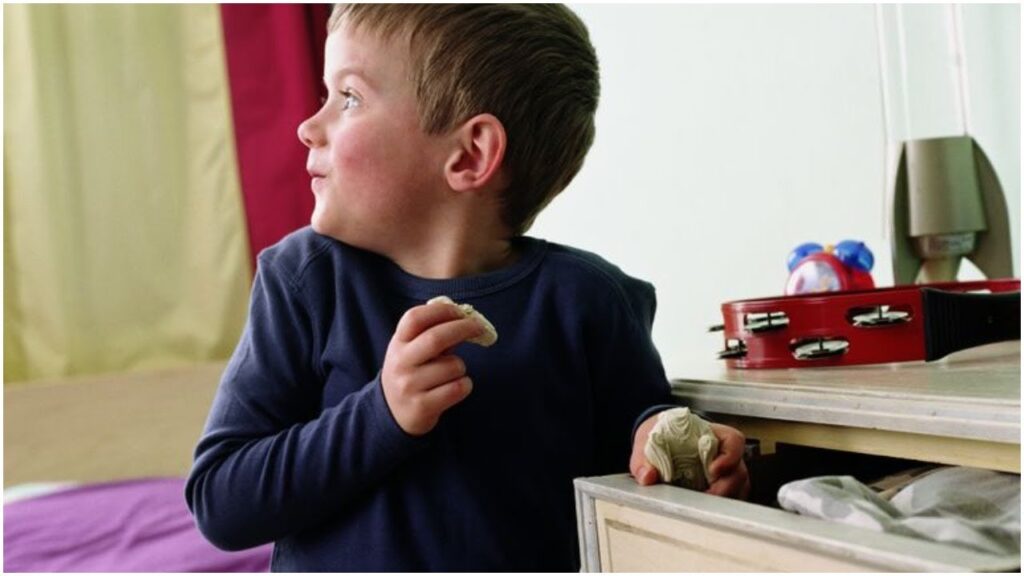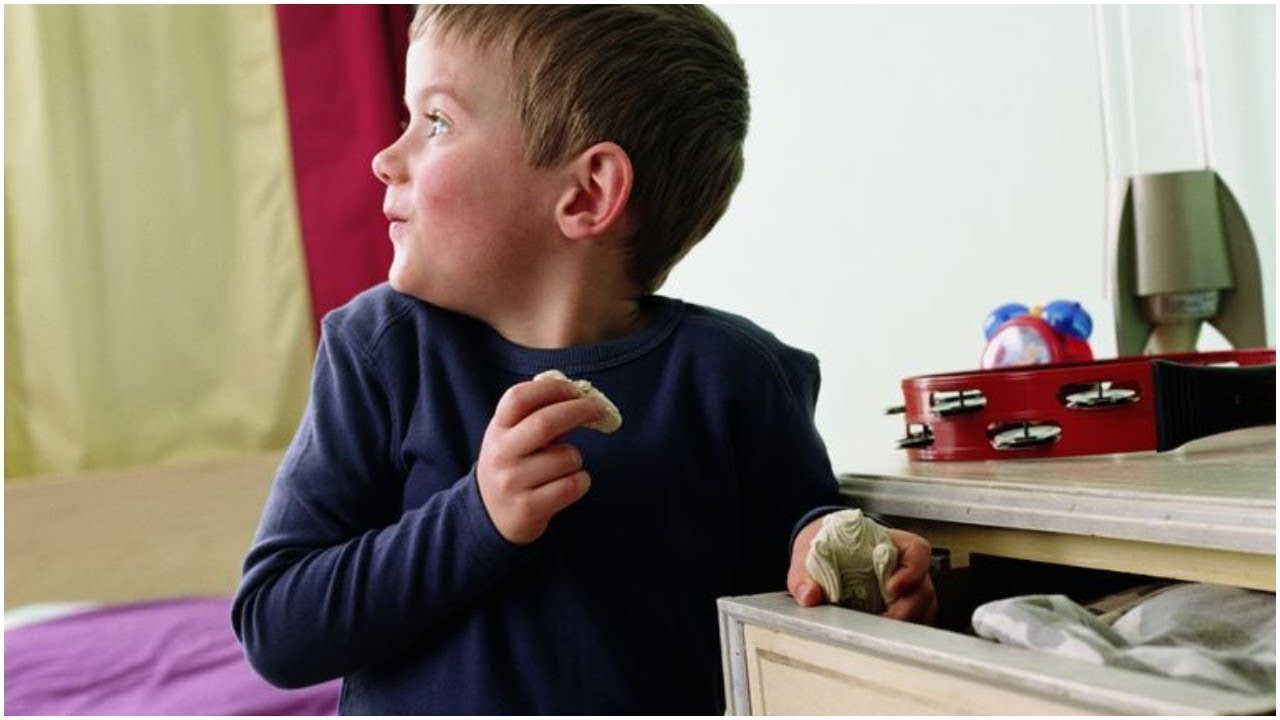
What To Do When Your Grown Child Steals From You: A Guide for Parents
Discovering that your grown child has stolen from you can be a deeply painful and complex experience. It’s a betrayal of trust that can leave you feeling hurt, angry, and confused. Knowing what to do when your grown child steals from you is crucial for protecting yourself, your assets, and ultimately, your relationship with your child. This article provides a comprehensive guide on navigating this difficult situation, offering practical advice and strategies for addressing the issue head-on.
Understanding Why It Happens
Before reacting, it’s essential to try and understand the underlying reasons behind your grown child’s actions. While stealing is never justifiable, understanding the motivations can help you approach the situation with more empathy and develop a more effective solution. Some common reasons include:
- Financial Difficulties: Job loss, debt, or poor financial management can lead a grown child to desperation.
- Addiction: Substance abuse or gambling addiction can drive individuals to steal to support their habits.
- Mental Health Issues: Depression, anxiety, or other mental health conditions can sometimes contribute to impulsive or irrational behavior.
- Entitlement: A sense of entitlement, often stemming from over-indulgence during childhood, can lead a grown child to believe they deserve to take what they want.
- Lack of Impulse Control: Some individuals struggle with impulse control, making them more prone to stealing, especially if the opportunity presents itself.
First Steps: Confirming Your Suspicions
Before confronting your child, it’s crucial to gather evidence and confirm your suspicions. Accusing someone without proof can damage your relationship irreparably. Look for tangible evidence, such as missing items, unusual bank transactions, or inconsistencies in their stories. Keep a record of everything you find, including dates, times, and specific details.
Consider whether it’s possible there’s a misunderstanding. Could someone else have taken the item? Is there a logical explanation for the missing money? Ruling out other possibilities will strengthen your case and prevent unnecessary conflict.
Confronting Your Grown Child
Once you have solid evidence, it’s time to confront your grown child. Choose a calm and private setting where you can have an open and honest conversation. Avoid accusatory language and instead focus on expressing your feelings and concerns. Here’s how to approach the conversation:
- Start with Empathy: Begin by expressing your love and concern for your child. Let them know that you’re approaching the conversation out of a desire to understand and help.
- State Your Observations: Clearly and calmly state what you’ve observed and the evidence you’ve gathered. Avoid making assumptions or judgments. For example, instead of saying “You stole my money,” say “I noticed that $200 is missing from my wallet, and I’m concerned about it.”
- Listen to Their Explanation: Give your child an opportunity to explain their side of the story. Listen attentively and try to understand their perspective, even if you don’t agree with it.
- Express Your Feelings: Let your child know how their actions have affected you. Express your feelings of hurt, betrayal, and disappointment.
- Set Boundaries: Clearly communicate your expectations and boundaries moving forward. Let your child know that stealing is unacceptable and that you will not tolerate it in the future.
Setting Boundaries and Consequences
Establishing clear boundaries and consequences is essential for preventing future incidents of theft. It’s important to be firm and consistent in enforcing these boundaries. Here are some steps to take:
- Financial Boundaries: Limit your child’s access to your finances. This may involve removing them from joint accounts, changing passwords, and securing your valuables.
- Living Arrangements: If your grown child is living with you, consider whether it’s still a sustainable arrangement. If not, you may need to discuss the possibility of them finding alternative housing.
- Trust and Communication: Rebuilding trust takes time and effort. Open and honest communication is crucial for fostering a healthier relationship. Encourage your child to be transparent about their struggles and to seek help if they’re facing financial difficulties or other challenges.
- Legal Action: In some cases, taking legal action may be necessary, especially if the theft involves significant amounts of money or property. Consult with an attorney to understand your rights and options.
Addressing Underlying Issues
If your grown child steals from you, it’s often a symptom of deeper issues. Addressing these underlying problems is crucial for preventing future incidents and fostering long-term healing. Consider the following:
Addiction Treatment
If addiction is a factor, encourage your child to seek professional help. This may involve therapy, support groups, or inpatient treatment. Offer your support and assistance in finding the resources they need.
Mental Health Support
If mental health issues are contributing to the problem, encourage your child to seek therapy or counseling. A mental health professional can help them address underlying issues, develop coping mechanisms, and manage their symptoms. [See also: Finding Affordable Therapy Options]
Financial Counseling
If financial difficulties are a factor, encourage your child to seek financial counseling. A financial advisor can help them develop a budget, manage their debt, and make sound financial decisions.
Family Therapy
Family therapy can be beneficial for addressing the underlying dynamics that may be contributing to the problem. A therapist can help you and your child communicate more effectively, resolve conflicts, and rebuild trust. [See also: Benefits of Family Counseling]
Rebuilding Trust
Rebuilding trust after a betrayal like theft takes time and effort. It requires both parties to be committed to the process. Here are some steps you can take to rebuild trust:
- Open Communication: Maintain open and honest communication with your child. Encourage them to share their thoughts and feelings, and be willing to listen without judgment.
- Consistency: Be consistent in your words and actions. Follow through on your promises and boundaries.
- Forgiveness: Forgiveness is a crucial part of the healing process. While it may not be easy, forgiving your child can help you move forward and rebuild your relationship. Forgiveness doesn’t mean condoning their actions, but rather letting go of the anger and resentment.
- Professional Help: Consider seeking professional help from a therapist or counselor. A therapist can provide guidance and support as you navigate the process of rebuilding trust.
When to Seek Professional Help
In some cases, dealing with what to do when your grown child steals from you may require professional intervention. Consider seeking professional help if:
- The theft is recurring or escalating.
- Addiction or mental health issues are involved.
- You’re struggling to set boundaries or enforce consequences.
- You’re having difficulty communicating with your child.
- The situation is causing significant stress or emotional distress.
A therapist, counselor, or financial advisor can provide guidance and support as you navigate this difficult situation. They can help you develop strategies for addressing the underlying issues, setting boundaries, and rebuilding trust.
Protecting Yourself Legally
In situations where the theft involves significant amounts of money or property, it’s important to protect yourself legally. Consult with an attorney to understand your rights and options. You may need to consider filing a police report, pursuing legal action, or taking other steps to protect your assets. [See also: Understanding Your Legal Options After Theft]
Document everything. Keep records of all stolen items, financial transactions, and communications with your child. This documentation can be invaluable if you need to pursue legal action.
Supporting Your Child Without Enabling
It’s natural to want to support your child, especially when they’re facing difficulties. However, it’s important to distinguish between supporting and enabling. Enabling behavior involves providing assistance in a way that perpetuates the problem. For example, giving your child money to cover their debts may seem helpful in the short term, but it can actually enable them to continue their irresponsible spending habits. Avoid enabling your child by:
- Providing financial assistance without requiring accountability.
- Making excuses for their behavior.
- Rescuing them from the consequences of their actions.
- Ignoring or minimizing the problem.
Instead, focus on providing support in a way that encourages responsibility and accountability. This may involve helping them find resources for addiction treatment, mental health support, or financial counseling. It may also involve setting clear boundaries and enforcing consequences for their actions. When deciding what to do when your grown child steals from you, remember that tough love may be necessary.
Moving Forward
Dealing with what to do when your grown child steals from you is a challenging and emotionally draining experience. However, it’s important to remember that you’re not alone. Many parents face similar situations. By addressing the issue head-on, setting boundaries, and seeking professional help when needed, you can protect yourself, your assets, and ultimately, your relationship with your child. Remember to prioritize your own well-being throughout this process. Seek support from friends, family, or a therapist to help you cope with the stress and emotional distress. It’s a difficult journey, but healing and restoration are possible.
The journey of recovery can be long, but with patience, understanding, and the right resources, it’s possible to rebuild trust and foster a healthier relationship with your grown child. Facing what to do when your grown child steals from you requires strength and compassion. Remember to take care of yourself as you navigate this challenging situation.

